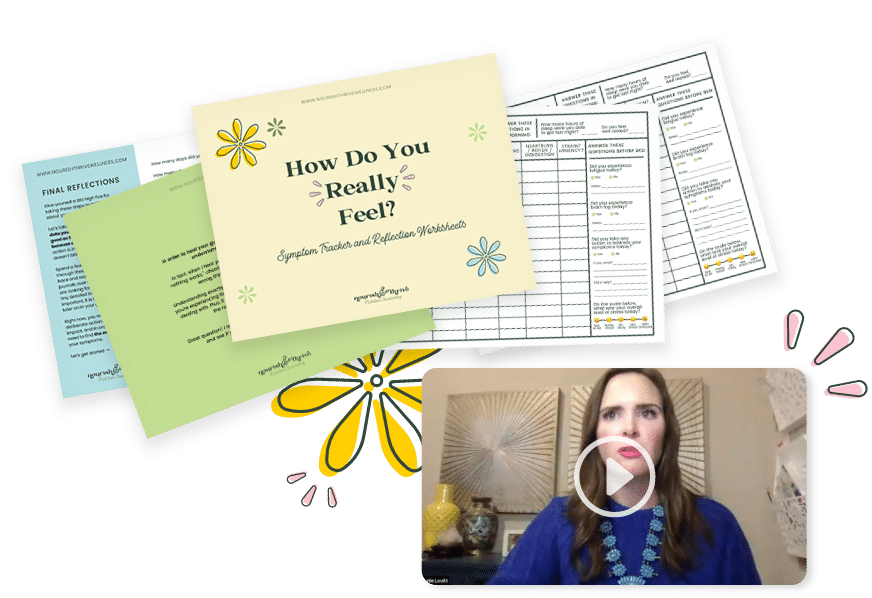
This is National Nutrition Month! This week was National Registered Dietitian Day (yay!). There was a bill that allows FDA to have higher regulation on personal care products voted out of sub-committee this week and into the full committee – something I have been working on with Beautycounter for years now (yay!). There are so many other topics I could be writing about this week because there is a lot to celebrate. But, Man – life is crazy right now. Crazy, stressful, tough. For me and for most of my clients. There is a lot of uncertainty with the global pandemic of COVID-19 aka Coronavirus – schools being closed, travel being impacted, and general uncertainty about what the future holds. Meanwhile, we have more demands than ever with work, family, health, and trying to find balance in between.
Challenges and struggles can beat us down – they can make us wave a little white flag in the air, they can suck our joy away, they can enable us to lose our passion and our vision. OR they can inspire and push us to grow in ways we never thought were possible. Have you ever thought about obstacles and struggles as opportunities to grow? If not, I challenge you to do that – if things aren’t going the way you had hoped or plan – ask yourself what you can learn, and how you can become better. This growth may not be visible at once, and it may not even make itself known until after the struggle is over. But to help you to give yourself room to grow, to saddle up and get through the storm, and to identify the growth that has taken or is taking place, I have a few tips to share:
1. Give yourself room to grow
We fill our days with stuff; we fill our homes with stuff. This stuff is distracting and keeps us busy – and oftentimes keeps us from having time to reflect and thing about things that have happened or are happening. I encourage you to clear the clutter, especially during times of stress. What can you say no to? To answer that – answer this first: What is your top priority? How about your top 1-3 priorities? What are you best at – what do you bring to the table in each of those priorities? Now that you know the answers to those, you know where you need to focus your attention most – on your priorities and what you bring the most to the table with. Everything else – either needs to get put on the back burner for now, or delegate to someone who is better at it than you or who it’s a higher priority for. Getting crystal clear on your priorities and what you want to focus on frees up mental and emotional space, as well as time to take some unnecessary pressure off of you.
2. Keep your breathing in check
Have you ever noticed when your stress level is high that your heart rate and blood pressure increases, your breath quickens, and your muscles tense? This cascade of events feeds the stress response. What if you could extinguish that fire almost immediately no matter where you are or what’s going on – just by breathing? Pretty incredible, right? Science has shown our breath controls our heart rate and stress response. By taking a few deep breaths, you can stop that spiraling stress response in its tracks. Try it now! Close your eyes. Well…read this, then close your eyes. Place your hands on your belly. Take a deep belly breath and feel your belly expand – count slowly to four; hold your breath 4 counts, then slowly exhale 4 counts and feel your heart rate slow. Repeat 2-3 times as necessary. Try practicing this a few times a day – I have clients set alarms on their phones to remind them to breathe, and place post-it notes in places they see frequently to help them to remember.
3. Keep a journal so you can look back and see how far you’ve come
Journaling sounds really overwhelming to me – I think of the old school diary with just pages and pages of your emotions and interactions – and it just feels like one other thing to add to my long to-do list.But I think there is something really powerful in looking back and remembering really difficult times and how we were able to get through them and how we have grown since going through them. It doesn’t have to be another major thing – it can be a simple notebook, a legit journal (check out this one line a day journal), or something on your phone. Take a look down memory lane quarterly or annually and see how far you’ve come.
4. Know that this too shall pass
Sometimes life just has hard seasons. Remembering that there is opportunity to grow through the struggle helps to give the season purpose – but it can still be difficult and challenging. But it will be over soon, even if it doesn’t feel like it at the time.
I hope that these tips have given you some good ways to cope through stressful times, and to look for opportunities to grow. They are tips I personally use in my own life, and use in my private sessions with clients as well. Do you have other tools you use to get through challenges? I would love for you to share them below!
-Katie


